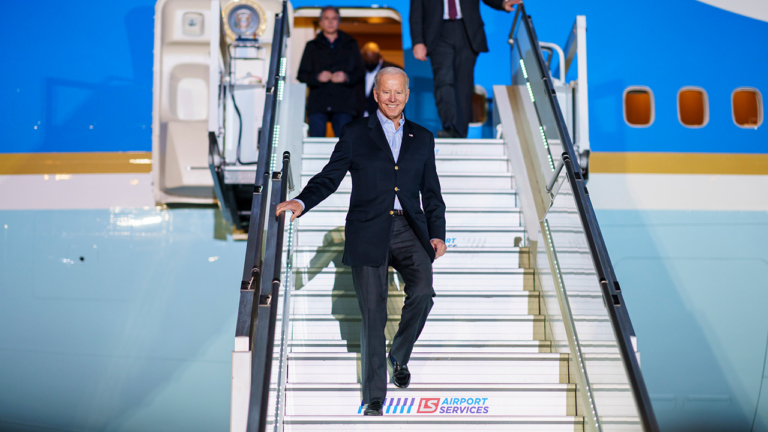
No Oil, No Regaining Control of the Middle East: Biden’s Visit Failed*
(Russia) on 17 July 2022
by Lyubov Stepushova (link to original)
President Joe Biden hasn’t found any support in Arab countries. A new generation of Arab rulers has become convinced that the U.S. is an unreliable ally.
Everything for Israel
Joe Biden's visit to the Middle East has been promoted as the one that will get results for the American people.
“There are so many issues at stake, I want to make sure that we can continue to lead in the region and not create a vacuum, a vacuum that is filled by both Russia and China,” Biden said.
The U.S. president visited Israel first. He promised $4 billion in aid and pledged that Iran's Quds Force will stay on the U.S. list of terrorist organizations.
Then Biden visited Palestine, where he was willing to provide only $500 million in aid. He also stated that the U.S. commitment to a two-state solution has not changed, but the ground is not ripe to restart Israeli-Palestinian talks. There was no attempt to discuss a freeze on the future construction of Israeli settlements on the West Bank, no criticism regarding the 2022 Israeli police raid on the Al-Aqsa Mosque, and no promise to move the U.S. embassy from Jerusalem back to Tel Aviv.
Why is the U.S. concentrating on Israel so much? The reason for this became clear during Biden's subsequent meetings in Saudi Arabia with the leaders of Arab countries.
America Needs Oil. But What about Its Core Principles?
The U.S. will undoubtedly benefit if Saudi Arabia ramps up oil production. This was the main goal of Biden's visit.
Last month, White House Press Secretary Karine Jean-Pierre said that the president's position on Saudi Arabia "still stands," meaning that Biden considers the kingdom to be a "pariah."
It might seem like the U.S. president has forgotten about the 2018 killing of journalist Jamal Khashoggi, when sanctions against Russia pushed oil prices to their eight-year high and made U.S. fuel prices reach their historic peaks.
In the end, Biden found a way to maintain his position on Saudi Arabia: His visit was not official and took place in Jiddah, rather than in the capital. Furthermore, the president avoided shaking hands with Crown Prince Mohammed bin Salman by greeting him with a fist bump.
Let us remind our readers that U.S. intelligence agencies previously concluded that it was Salman himself who had ordered the killing of Khashoggi.
Such disrespect for the crown prince didn't go unnoticed, meaning that Biden's visit was doomed from the beginning.
No Oil, No Military Alliance between Israel and Saudi Arabia
According to Reuters, Biden failed to secure Riyadh's guarantees to increase oil production and secure a military alliance between Saudi Arabia and Israel.
This alliance was supposed to help Washington regain control of the Middle East.
However, Biden has managed to achieve a small victory: He convinced Riyadh to increase oil production to 13 million barrels per day by 2027. As for the proposed Israeli-Arab military alliance, Saudi Foreign Minister Prince Faisal bin Farhan said that he wasn't aware of any talks concerning a defense alliance between the Persian Gulf states and Israel, nor is the kingdom taking part in such negotiations.
This position is completely understandable, given that the U.S. has maintained its ban on selling offensive weapons to Riyadh since February 2021. The ban was introduced in response to Saudi Arabia's military campaign against the Houthis in Yemen.
What Are the Outcomes of Biden's Visit to Jiddah?
First of all, it is highly unlikely that the Democrats will improve their approval ratings before November's midterm elections.
Second, they won't be able to curb Iran's nuclear ambitions or decrease the influence of Russia and China in the Middle East.
Third, based on experience, a new generation of Arab rulers, who have different ambitions, priorities and objectives, has come to realize that the U.S. is an unreliable ally, thus it is absolutely possible to deal with Russia, China and even Iran. That is why Saudi Arabia is considering joining BRICS**.
**Editor's Note: BRICS stands for Brazil, Russia, India, China and South Africa.

